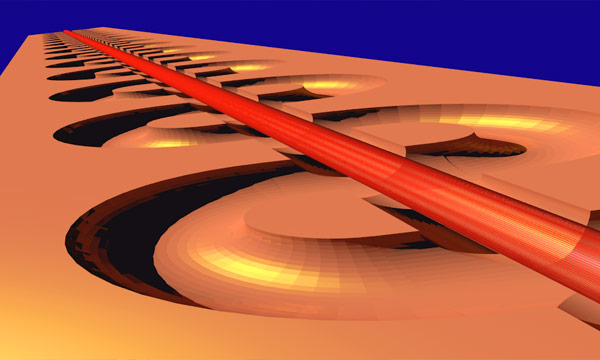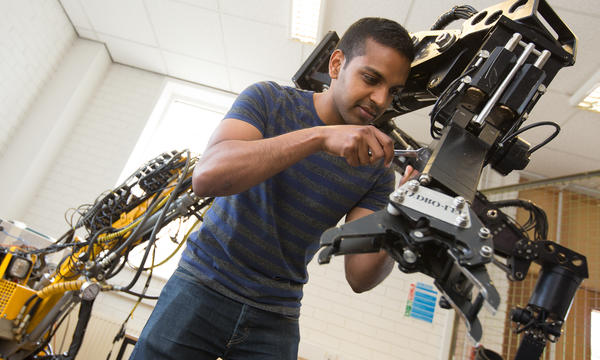Develop and enhance your understanding of electronic engineering to an advanced level, setting you apart in your career. You will learn from world experts in areas that are crucial to the electronics sector over the next decade. Through our wide range of core and optional modules, you will also have the opportunity to tailor your learning experience towards specific industrial sectors including energy, the environment, automotive, wireless technologies and health.
You may already have a firm grasp of the essentials of the discipline, however this programme will provide you with a practical understanding of advanced topics linked to a research portfolio that has been rated as internationally excellent, and guided by leading experts, including industry specialists.
This programme is accredited by the Institution of Engineering and Technology on behalf of the Engineering Council as meeting the requirements for Further Learning for registration as a Chartered Engineer. Candidates must hold a CEng accredited BEng/BSc (Hons) undergraduate first degree to comply with full CEng registration requirements
A cutting-edge learning environment
The learning environment you will study within embraces expertise in electronics for wireless communications, flexible and printable electronics, solar cells, RF engineering for Particle accelerators, millimetre waves and terahertz technology. Exposure to these technologies will take you beyond current industrial practice to develop specialist knowledge and skills for emerging markets. As part of our general engineering ethos at Lancaster you will mix with multi-disciplinary engineering concepts from electronics, mechatronic and mechanical engineering, skills which are highly sought after by employers.
You will become adept at programming advanced microcontrollers; designing RF circuits; designing microstructures for advanced displays and sensors, building control loops and developing associated software. The robust and comprehensive skill set and knowledge you gain will open up a range of opportunities and support your progression as a professional.
Project based learning
During the course, you will also complete a project provided by either one of our industry partners or from within the Department’s own research portfolio - we have world-leading research and facilities in very high frequency next generation mobile communications, particle accelerators for radiotherapy, Industry 4.0 and industrial control systems, microfluidics and MEMS, and RF and THz sensing.
The project brings together multiple aspects of your studies and provides valuable real-world experience of working as a professional electronic engineer. As part of this project, you will structure and break down a problem; develop team organisation, project management and technical skills; and use background sources and research. You will also gain career experience by presenting your results and writing a customer report. Examples of previous projects include:
- Self-repairable electronics through unification of self-test and calibration technology
- Solution processed electronics over a large area: design and realisation of a fully computerised XY(Z) spray coater employing multiple pneumatic and/or ultrasonic airbrushes
- Detection of living cells in a microfluidic system using electrochemical and RF technologies
- Monolithic microwave integrated circuit (MMIC) design for wireless networks
- Vision and robotic control interface system.
Assessment
Engineering is more than just theory and, as a result, you will experience labs/practical sessions, workshops and group tutorials, alongside lectures. This contact is with academic staff that are internationally recognised and work alongside global electronics companies.
In addition, our technicians and admin support team are very approachable and have many years of experience in helping students achieve success.
Assessment varies between modules, allowing students to demonstrate their capabilities in a range of ways. Typically you can expect assignments such as coursework, presentations and formal examinations.
Community
As a department, we prioritise delivering high-quality, rigorous programmes that prepare and equip our graduates for a rewarding career. The Department provides an interdisciplinary approach that reflects the dynamic nature of professional engineering.
Our Department is an internationally recognised leader in research and innovation and, as such, you will join a thriving and supportive academic community. Staff and students alike will welcome and support you both academically and socially.
You will be encouraged throughout your programme in a friendly, vibrant environment that is conducive to excellent research and learning.






